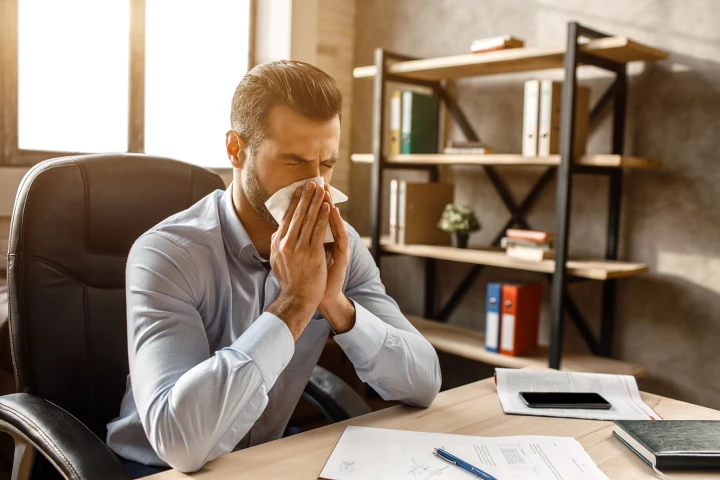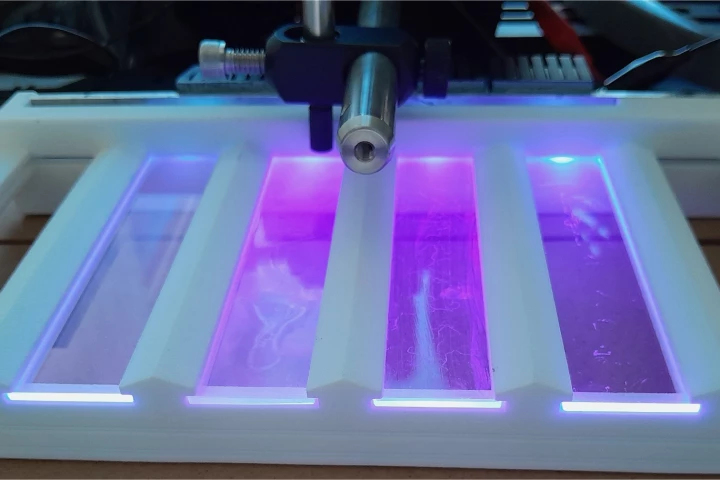Biofilm
-
Many persistent sinus infections involve biofilms – colonies of bacteria that group together to resist efforts to kill them. Now, researchers have developed biofilm-blasting bots that could handily deal with these, and other, bacterial infections.
-
It's never a good thing, when a bacterial biofilm forms on the surface of a medical implant. There could soon be a new way of eradicating such films, however, using tiny remote-control liquid-bodied robots.
-
Scientists are using UV-emitting glass to keep problematic undersea biofilms at bay. The technology may find use in applications such as underwater viewing ports and camera lenses, and perhaps even one day the hulls of ships.
-
Research has found that iron levels trigger the formation of a kind of ‘memory’ in bacteria that drives their subsequent behavior and is passed on to their progeny. The discovery could help prevent bacterial infections and address antibiotic resistance.
-
Ordinarily, when treating chronic wounds, caregivers go to great lengths to keep them free of bacteria. An experimental new dressing, however, actually introduces bacteria to help such wounds heal.
-
Researchers have just found a bacteria that forms superstructures when it gets caught in sticky traps made by other bacteria, helping it erode enamel and form cavities. The finding could lead to new ways to keep our teeth clear of the invaders.
-
E. coli is arguably the most well-studied organism on Earth, but scientists have now discovered a new behavior that’s almost never seen in bacteria. The normally single-celled organisms have shown signs of previously unknown multicellular phases.
-
Wearable electronics could soon be powered by dead microbes. New research out of UMass Amherst has demonstrated a biofilm that generates electricity from sweat, harnessing the corpses of dead bacteria – and it's at least as effective as a battery.
-
Scientists have demonstrated a new way to fight antibiotic-resistant superbugs by pitting bacteria against each other. The team engineered a common bacteria to safely colonize medical implants, then produce enzymes that dissolve superbug biofilms.
-
Researchers at Hong Kong Polytechnic University have devised a method of trapping tiny plastic particles using a sticky bacterial biofilm, which they hope could find use in wastewater plants to prevent them from entering the ocean.
-
Microplastics are increasingly found polluting waterways and causing unknown damage to the health of animals and humans. Now, a new study provides evidence there's cross over with another looming public health threat – antibiotic-resistant superbugs.
-
It can be difficult to separate water from oil, which makes water pollution tricky to clean up. Now, researchers at North Carolina State University have found that a bacterial biofilm membrane can effectively let water through while keeping oil out.
Load More











